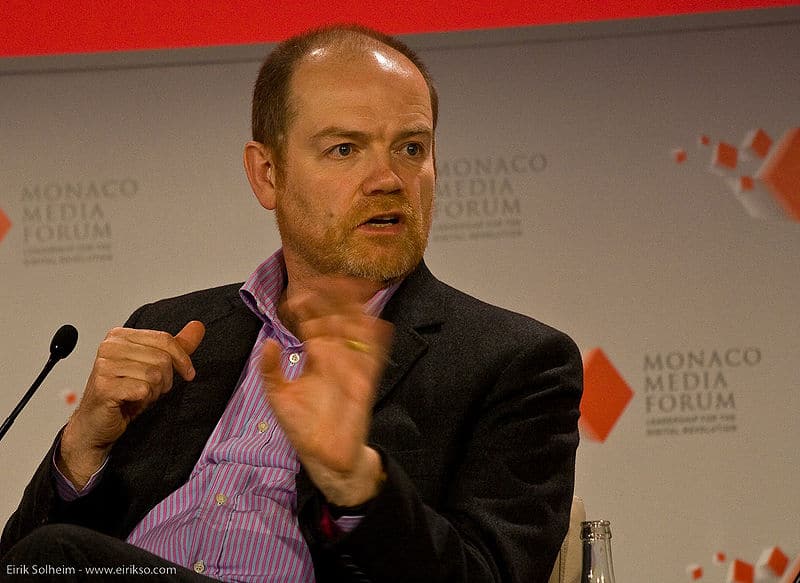Mark Thompson, the Director General of the BBC, will doubtless have several nasty things said about him today. In the pubs down the road from TV Centre in Shepherd’s Bush, disgruntled staff will be slagging him off, no doubt. Newspapers tomorrow will be full of vitriol poured out against him. And Twitter and Facebook are already awash with people criticising his proposals to axe BBC Six Music and the BBC Asian Network.

Tucked away in his announcement today was the proposal to scrap 50% of the existing BBC web presence. The headlines shouted the notion that the web budget would be cut by 25%, but apparently one way of doing this would be to cut the size of the BBC website’s presence in half. Just when you thought there was one organisation that understood the Internet, in one swoop, the boss reveals that he – at least – doesn’t seem to know much about the web.
For a start, even if they remove half the BBC’s web presence, it won’t save them much money, if any. True, there’ll be a slight saving in storage costs, but that’s pennies compared with the production costs. And even they are cheap in comparison to an hour of Strictly Come Dancing. The theory appears to be that if you “get rid” of half the website, it will enable us to save money. In fact it will cost money. Here’s why. Firstly, if there are areas which the BBC removes from the web, other content producers will fill the gap. That will take audience away from the BBC Online to alternative websites. One of the benefits of the massive BBC presence on the web is the fact that people stick with their websites, moving from one page to another thanks to the massive amount of content. Slash that content and overnight the online audience will plummet.
And with it will go the cross-media promotional opportunities the BBC gets. They will find that their reduction in online audience fuels a reduction in TV and radio audience. They have forgotten that we now live in a multi-media world with people consuming information in multiple ways. They watch the TV show, go to the relevant web pages promoted on the programme and see, for instance, that one of the stars is on the radio next week. Cut your website and you reduce such promotional potential.
But that’s not all. Slash and burn your website, as Mark Thompson is proposing, and you give the likes of The Guardian to further increase its production of podcasts – eating further into the BBC audience. Already, The Guardian is one of the world’s biggest audio and video podcasting producers with millions of listeners and viewers worldwide. It only needs the “nod” from the BBC that there is now a bigger gap to fill and boy will they fill it.
Furthermore, the BBC website announcement comes the day after the publication of a report pointing out the ever increasing move to online consumption of news. You might call it bad timing or madness, but to suggest that you will halve your web presence, just after a study proves the increasing value of the Internet to an organisation like the BBC is, at the very least, unfortunate.
True, the BBC needs to save money and provide value to us, its audience. But the website proposal – whilst popular with politicians and competitors – is probably the single, most ludicrous suggestion that has been made by the Corporation. To cut the web presence so significantly will have serious, dramatic and possibly irreversible consequences for the BBC. Far from reducing its web presence, it should, like every organisation be seeking to increase it. Rather than spending less money on the web, the BBC should be spending more.
The world has changed; today’s announcement reveals that the BBC either thinks it is immune to that change, or that it has to please politicians who are about as web savvy as my ginger tom cat.
And does this have an implication for your web business? Of course it does. It shows that changing your web presence will have implications for you, beyond your website. Any changes you make, in order to save costs online, will have consequences outside your control. For the BBC it is various Facebook groups damning the suggested changes. For you it could be negative Twitter comments. Changes to your web presence must not be taken lightly. The suggestions from the BBC today about their website shows they have not understood the web and the implications of their ideas. Don’t let your business get caught in the same way. Invest more in your web presence – not less; online is the only future many businesses have. And it is the only future that traditional media outlets have. By cutting the website, it seems as though the BBC is struggling to get the “good old days” back. It looks like the BBC is going backwards, rather than forwards. By September we could be tuning in to the Light Programme or the Home Service. But at least we will be safe in the knowledge that they will be coming from spanking new £1bn offices and studios. What a good way to spend licence payers money that was…!

